#living kiss
Note
hi. i don’t know why i haven’t sent a message sooner. but better late than never.
anyway. i just wanted to say “and this, your living kiss” changed my life. it inspired me to start writing my own poetry. poetry that has now been published. a published collection that does thank one jack allen in the acknowledgments.
without going into too much detail or trauma dumping or anything, this past year has been the worst of my life. any time i felt like there was nothing good left in the world, i’d reread atylk and remember that there’s so much beauty out there. your fic has been pretty instrumental in my healing. i even got a tattoo of one of my favorite quotes from the fic recently (see attached photo).
so yeah. thanks for sharing your words with the me and the world and everyone else.


Wow, this is. This is incredible, truly.
First, I am so, so sorry you've been going through it this past year. It heartens me that despite the challenges you've been facing, you've found the strength and courage to find the good and keep on keeping on. That my story had some part to play is humbling; I can only be grateful to have been able to help in this small way.
It never fails to leave me boggled when someone says my writing has inspired them to write in turn, and that so many people have (re)kindled a relationship with poetry because of this fic warms me to the core. I am so proud of you for putting pen to the page, carving yourself this creative space, and then bravely sharing it! Getting published too, wow! I always say the world needs its poets, and I couldn't be happier that you've added your voice to the human chorus.
The tattoo, though--that is a new one for me. I can barely sort my emotions just sitting here looking at it, proof positive of all the kind things you've said. Shocked, for sure. Humbled, once again. All I can think to say is this: I do turn to poetry in general when my spirit is heavy with ache, but the work of Tennyson in particular has helped me through some of my darkest times. To see his words there mixed with my own as a single snapshot of permanent ink, living artwork warm and pulsing, shatters me.
Friend, you are a marvel. That you have come through your crucible to live anew is triumph enough, but the way you are moving through the world making your own beauty and meaning despite - or maybe even because of - it? That is to be celebrated as well.
Thank you for this.
210 notes
·
View notes
Text

Michael “acting choices” Sheen serving as always lol
#I live for Michael being an active part of this fandom#he’s just as much of a David Tennant’s fangirl as the rest of us lol#everyday I get to kiss David Tennant is a good day#any excuse will do#good omens#good omens fandom#ineffable fandom#aziracrow#ineffable husbands#aziraphale#good omens s2#good omens season 2#good omens memes#neil gaiman#david tennant#michael sheen#crowley
10K notes
·
View notes
Text
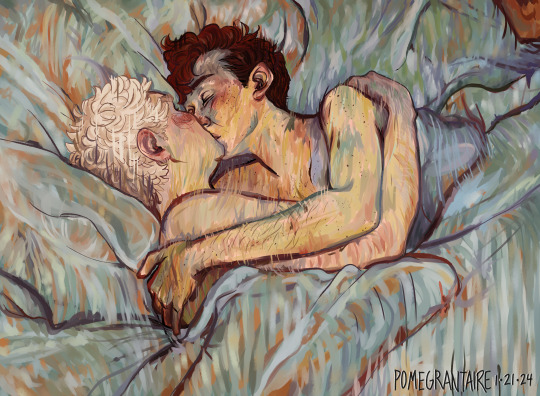
Au lit, le baiser by Henri de Toulous Lautrec but make it Aziracrow
#posting this late but i just finished it and i can rb it tomorrow#doing this digitally was wild and i probably could've done it traditionally with real live oil paints but maybe next time#i did have fun with this tough!!#i went to name the file 'smooch' but it ended up being 'smlooch' but thats still good#good omens#good omens fanart#good omens painting#aziracrow#air conditioning#ineffable husbands#ineffable partners#crowley#aziraphale#anthony j crowley#kissing#gomens#crowley x aziraphale#toulouse lautrec#pomegrantArt#im sure someone's done this already but i was Inspired
13K notes
·
View notes
Text
if i think about the hunger games in peeta's perspective i WILL start sobbing
#imagine you're a boy who's going to die. you're in love with the girl you've been watching from afar. you know your fate.#you just want to help her‚ but then there's the announcement and she's here in front of you‚ kissing you‚ risking her life for you and you#think‚ i could live and i could love. you think she loves you when she hands you the berries‚ when she puts them in her mouth.#then you both survive and you go back home and nothing is real anymore. you have nothing. no family. no friends. no love. just an empty#house. a drunk for a neighbor. the love of your life walking into somebody else's arms. you think‚ i survived the games. i could survive#this. and you also think‚ i should've bit down on those berries‚ should've felt the juice burst before i died.#and then the third quarter quell announcement rings in your ears and you think‚ she will live and i will die as i should have in the first#place. the girl you love kisses you on the beach and somewhere you heart stirs and your mind revolts and you savor every touch she has ever#given to you‚ in front of the cameras and off. because you are a tribute and you are always being watched and snow's presence looms and#you think‚ i know she cares. but you get taken. you get drugged. you get tortured‚ your mind altered. the girl is a mutt‚ a murderer. she's#everything you despise‚ your mind stirs. your heart revolts. you gain more awareness but cannot distinguish reality from fiction and you#have never known katniss' love. the war ends. you heal. you come home. you plant primrose for her. years down the line‚ you grow in love#more than you thought possible. but some days‚ you cannot tell fiction from reality so you ask the love of your life‚ you love me.#real or not real? and she says‚ real‚ and kisses you.#and you sigh and kiss her back and revel in this. a home. a life. a love.#lit#the hunger games#everlark#otp: real or not real?#katniss everdeen#peeta mellark#text#tais toi lys#thgpost
18K notes
·
View notes
Text
Steph: Who was the best kid? Like, when you got them, who was best at, uh, being a..good kid?
Bruce, immediately: Jason.
Tim, traumatized: Let's not do this right now.
#i love when stuff is like#Tim living in Jason's shadow up to the point where the guy tries to kill him#mwah chefs kiss#tim drake#red robin#robin#rr#batfam#jason todd#bruce wayne#stephanie brown#batman#spoiler#red hood
7K notes
·
View notes
Text

feeling silly goofy about One Piece again
#one piece#opla#zosan#ronoroa zoro#zoro x sanji#one piece live action#sanji#zoro#I’m allowed to have fun and please know this isn’t that serious#i just think they’d both benefit from kissing a little#as one does#black leg sanji
15K notes
·
View notes
Text
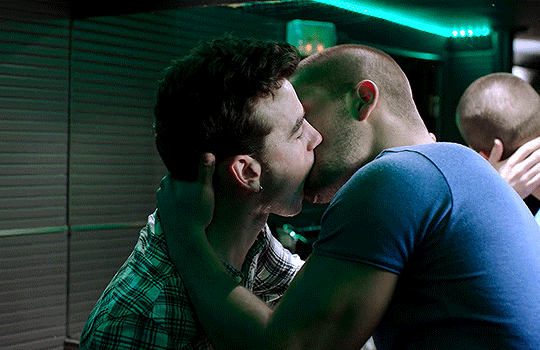
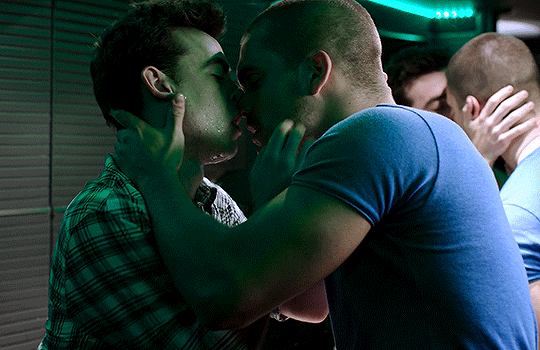
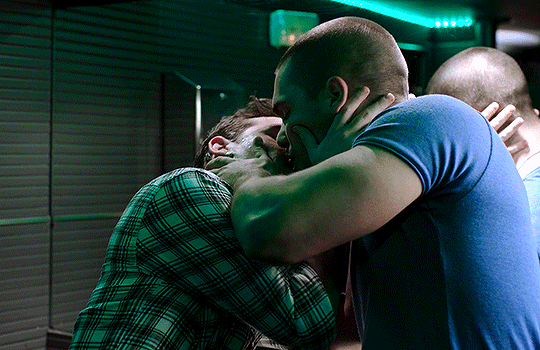
Àlex Monner and David Varela
Unauthorized Living 1.04
#àlex monner#alex monner#david varela#unauthorized living#vivir sin permiso#serie#tvedit#actors#men#mendit#lgbtedit#gay#lgbt#gay kiss#kiss#gifs#mine#*
5K notes
·
View notes
Text



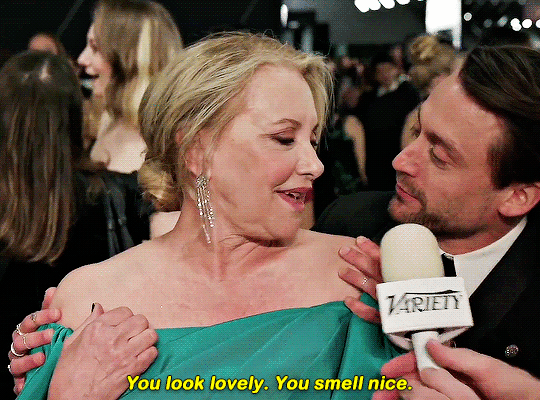


#i live here now#what the heck just happened?#im here for it though#in a non disgusting way#just in a gerri and roman way okay#romangerri#succession#emmys 2024#the emmys#j smith cameron#kieran culkin#roman roy#gerri kellman#i love them#i miss them#roman x gerri#gerri x roman#kiss#kisses#kissing#see what we would have gotten if the writers let them be a thing#god i wish they had#emmys
6K notes
·
View notes
Text




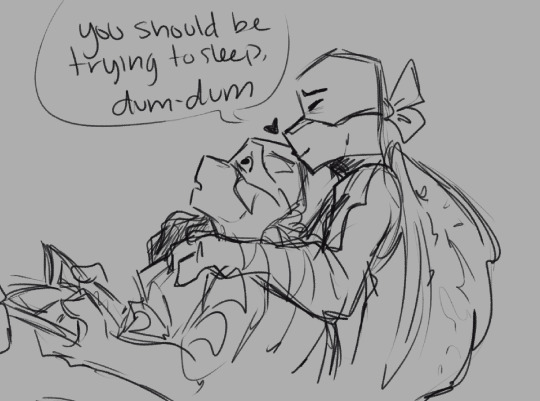
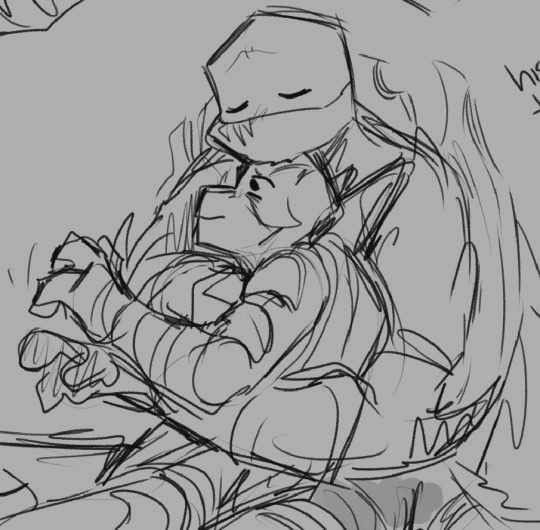
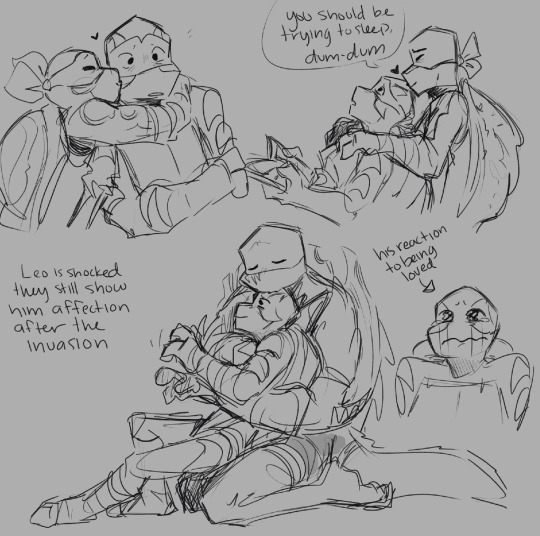
So some of y'all need to go touch some grass and learn that brotherly affection can include forhead and cheek kisses without it being gross
I like to imagine Leo is very affectionate, but when his brothers show him affection, he freezes up. Especially after the invasion, he fucking cries when his brothers show him affection wihtout him needing to "earn it" or anything like that
#sad•leonart#rise of the tmnt#rottmnt#rise leo#rise leonardo#rise donnie#rise donatello#rise mikey#rise michelangelo#rise raph#rise raphael#brotherly affection#featuring tail wags because yes#the image of leo pulling donnie away from his computer with a gentle forhead kiss to tell him he should go to bed#will forever live rent free in my head#and vice versa#theyre brothers your honour /ref#the brothers ever#i love them so much
4K notes
·
View notes
Note
Hey. I just really want to thank you for “And This, Your Living Kiss”. I’m guessing you may be a bit tired hearing us talk about it, what, 4, 5 years after you published it? I just need to express some gratitude. Your poem “Perfect” was probably the first poem ever to make cry, and I still read it occasionally when I’m down. It’s honestly probably my favorite poem ever. For me it captures this delicate, still very anchored kind of happiness that just hits so deep. Kind of like the opposite of melancholia. I hope you get what I’m saying and that I’m not just talking out of my ass, and if I am, I was hoping you’d share some of your thoughts about this poem?
Also, this story is truly my favorite story ever. Has been for a very long time. A question I have for you is, is there any place where we can read more of your poetry? And if not, I was also wondering if you’d be willing to share with us some of your favorite poets/poems?
Firstly, thank you for your patience; sometimes it takes me a while to get to asks.
But mostly, thank you so much for these kind words. Do not ever doubt yourself when taking the time to extend your positivity to others; I—and I daresay the vast majority of people—do not get tired of receiving these small kindnesses. It’s a reminder that life can be full of connection, a reminder that when I send a little bit of my heart out into our raging, grief-filled world, there are those who accept and understand and, hopefully, keep passing that love forward. And thusly we make the world a better place. So please receive my gratitude for reaching out.
That you love “Perfection” means so much to me. It was the first piece of the fic I wrote, you know, and pretty much became the basis for who Dean is in the fic thereafter. I don’t feel you’re talking out of your ass at all. Dean is such a complex character, and I think that’s why so many of us relate to him; we see our own complexity and contradictions reflected back at us through him. There is of course happiness there among the rest—a boy/man who is at his happiest when with his family (blood or no). Underneath it all is that deep thread of love we (and Cas!) admire and strive toward within ourselves.
Unfortunately I don’t have poetry published anywhere else. Maybe someday.
Several of my fav poets/poems appear in the fic already, though they’re among many others. However because I’ve been thinking about her lately, I hope you’ll indulge me if I talk about Elizabeth Barrett Browning and her masterpiece Sonnets from the Portuguese.
In the modern day EBB’s words most often show up in the guise of “How do I love thee? Let me count the ways.” It sounds a bit hokey, doesn’t it? I know I always thought so; especially to my teenage ear it was sickly sweet if not downright simpering. Spoiler: I was wrong. Context changes everything.
Do you believe that some books or stories come into your life at just the right time? Fast forward to when I’m 18 or 19. I’m in a town I’ve never been to before, visiting people I barely know. My host needs to work and offers to drop me off in the town center to explore. I agree because the weather’s fair and I’m desperate for a break from polite company, as it were. Happily it’s a pleasant area, full of green and not far from a large canal. After wandering along its edge for a while I aim back toward the local stores and window-shop up and down the streets. At last I stumble upon a used bookstore right next to a gelateria! Well you couldn’t have put two things together that more matched my taste if you tried. Naturally, I resolve to find a book and then go next door for some gelato and spend my time enjoying them both.
The bookstore is in an older building, for sure, with hardwood floors and the type of wainscoting that make me think it’s from the early 20th century at least. It’s split into multiple rooms and connected by open doorways; I wonder if it used to be a home. Many, though not all of the bookshelves are built into the walls and painted a pleasant white, stuffed to the gills with books in every color. The only other soul in the building is the man behind the front counter, and aside from a swift exchange of polite smiles I am left alone. I start by going to the left and poking around the shop and its little book-filled rooms counterclockwise, determined to choose at least one thing before I leave. What type, what genre? What length, what mood? I don’t know, but am sure I’ll know it when I see it. I’m free to choose whatever I like, you understand, because rarely had an English teacher in my past convinced me I couldn’t teach myself better, and I’d resolved never to take a class in the English department in college if I could help it (and for better or worse, I never did).
I take my time twisting in and out of the treasure-filled corners, no rush and no fuss. Yet no book sings to me. At length I near the back of the shop; on the far side beneath a window is a short, two-shelf bookcase. With waning hope I crouch in front of the shelf and begin reading spines. Aha! It’s filled with poetry. Perhaps there is some hope after all…then there it is: Sonnets from the Portuguese. Definitely faux-fancy binding, but still pretty. It looks like this:
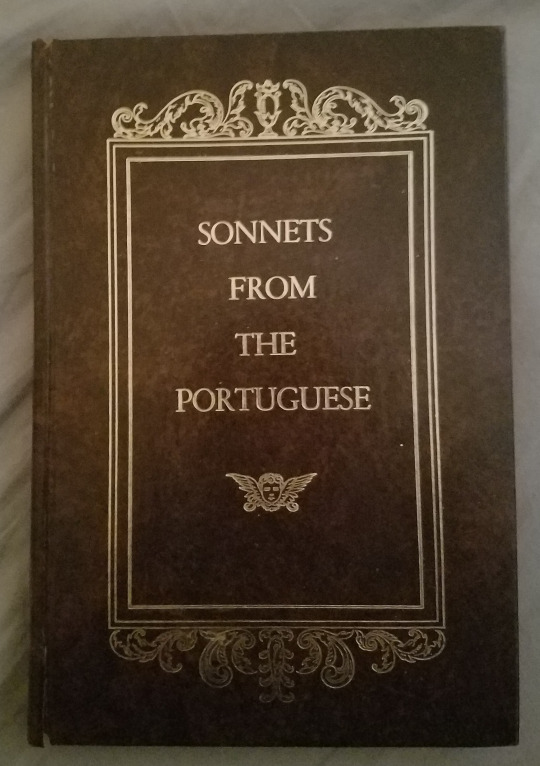
I flip through, and every sonnet is accompanied by a different piece of silhouette art. It’s lovely, and it sings to me. A small pencil mark on the inside indicates it only costs a couple bucks, so I rummage in my wallet, stop by the front desk, and leave the store with the book clutched in my hands. With the rest of my cash I go to the gelateria next door and pick a couple of unusual flavors and again, alone, I choose a rickety metal table outside and sit with nothing but birds and sunshine for company. I skip the introduction and open the book immediately to the first sonnet:
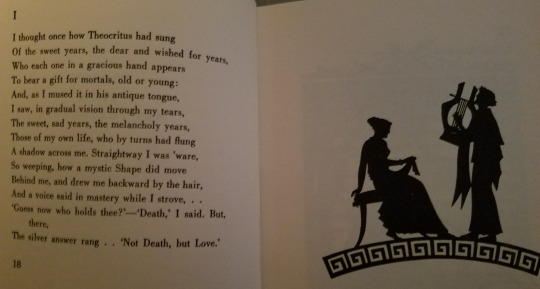
I thought once how Theocritus had sung
Of the sweet years, the dear and wished for years,
Who each one in a gracious hand appears
To bear a gift for mortals, old or young:
And, as I mused it in his antique tongue,
I saw, in gradual vision through my tears,
The sweet, sad years, the melancholy years,
Those of my own life, who by turns had flung
A shadow across me. Straightway I was ’ware,
So weeping, how a mystic Shape did move
Behind me, and drew me backward by the hair,
And a voice said in mastery while I strove, . .
'Guess now who holds thee?'—'Death,' I said, But, there,
The silver answer rang . . 'Not Death, but Love.'
What do you glean from the poem? It is slow and sad, a bright mythologized ideal set against a woman sunk deep in dark grief, a darkness that swiftly shifts into horror as a Shape appears behind her, physically pulls her from her weeping, and demands a response. She is so sure that her own death has at last come upon her, except what’s appeared…is love? Love, of all things? Love?
This is not at all what I am expecting to read. I fill up with another spoonful of gelato and eagerly turn the page.
And turn, and turn—Reader, I’m hooked. I’m strapped into a rollercoaster and freefalling down the first slope, on a wild ride built by a woman who’s been chronically ill since childhood, who’s lived through the death of her mother and beloved brother, whose father keeps her in his house and firmly under his thumb even long into her thirties, who still manages to write and get published and yet still lives lonely in her dark room…Sonnets from the Portuguese is an epic journey via the most astonishing set of 44 sonnets about how love completely changed her life, sonnets which her husband later touted to be the best in English since Shakespeare (and I agree). If you haven’t read the sonnets I encourage you to do so before reading on, link here, but if you’d rather I walk you through…
Even reading them again now I am in awe. How baldly and boldly she talks about how she and Robert, because of course it’s about her famous courtship with Robert Browning, are not meant to be. Not just her circumstances at home, not just her poor health, not just the fact that she thinks herself so below him and his worth, but also her grief. The darkness that lives in her! So many lines from these poems are woven into the tapestry of my life, like from sonnet V: Behold and see / What a great heap of grief lay hid in me. She warns that it could ruin him. Stand further off then! go! it ends.
And yet the next one (VI) begins: Go from me. Yet I feel that I shall stand / Henceforward in thy shadow. It is too late. She’s already been changed. The world and her perception of it are already shifting. Read how the beginning of VII illustrates this:
The face of all the world is changed, I think,
Since first I heard the footsteps of thy soul
Move still, oh, still, beside me, as they stole
Betwixt me and the dreadful outer brink
Of obvious death, where I, who thought to sink,
Was caught up into love, and taught the whole
Of life in a new rhythm. The cup of dole
God gave for baptism, I am fain to drink,
And praise its sweetness, Sweet, with thee anear.
She was sinking into oblivion, death her companion, until he stood between them and she was caught up into love, no longer to go through her days sitting simple and still in her room, content to wallow in the sorrow she’d been given. Yet…that still doesn’t matter, because how can she reciprocate? And, crucially, does it make her a bad person that she can’t?
am I cold,
Ungrateful, that for these most manifold
High gifts, I render nothing back at all?
Not so; not cold,—but very poor instead. (VIII)
Have you ever been there? Found yourself wondering if you’re even capable of love and kindness toward others given all you’ve been through, and how horrible it feels to think that ability’s been stolen from you? Is what little you can eke out even worth anything in comparison? Beloved, I only love thee! let it pass. (IX)
But she continues turning the idea of love over in her mind. Could it be that love is fully worthy, no matter where it comes from? There’s nothing low / In love, she reasons, when love the lowest (X). Still it does not seem that she herself could be worthy—and if this is worthy love, anyway, would she have even known how to do it if she’d not first been shown by him?
And thus, I cannot speak
Of love even, as a good thing of my own:
Thy soul hath snatched up mine all faint and weak,
And placed it by thee on a golden throne,—
And that I love (O soul, we must be meek!)
Is by thee only, whom I love alone. (XII)
It seems that Robert persists in his own love, because then an earnest plea: that he love her for love’s sake, because people change in time. She herself is changing now because of him! Do not even love her because he loves taking care of and comforting her, because his love could lessen her need for that comfort! (XIV)
Regardless she is not without feeling, as sad and calm as she outwardly seems. She’s just not like him. But…could his love and his will be strong enough to overcome all these obstacles? Why, conquering / May prove as lordly and complete a thing / In lifting upward, as in crushing low! With such success, she says, I at last record, / Here ends my strife. (XVI)
But of course, nothing can be quite so simple. Her first question is how she can be useful to him. This does not feel like a full partnership:
How, Dearest, wilt thou have me for most use?
A hope, to sing by gladly? or a fine
Sad memory, with thy songs to interfuse?
A shade, in which to sing—of palm or pine?
A grave, on which to rest from singing? Choose. (XVII)
That theme of death, too, is still ever-present. Even as the next couple of sonnets talk about how they’ve exchanged locks of hair she speaks of it. In XX a sea-change is further revealed, however, when she compares her life before Robert to the one after knowing him, how link by link, [I] Went counting all my chains but now, in contrast to VII’s cup of dole, she drinks from life’s great cup of wonder! She begs him to keep saying that he loves her (XXI), continuing the theme that his love will teach her, lift her, allay her many fears. But the next again ends with the death-hour rounding it.
Robert’s response? That her death would harm him. She admits to marveling at this revelation. If it is to be believed,
Then my soul, instead
Of dreams of death, resumes life’s lower range.
Then, love me, Love! look on me—breathe on me!
As brighter ladies do not count it strange,
For love, to give up acres and degree,
I yield the grave for thy sake, and exchange
My near sweet view of heaven, for earth with thee! (XXIII)
So first we learn that it is Love, not Death that has grabbed her; then we know that she feels Robert’s soul has slipped between her and the brink of death and thus she begins to question her constant sorrow; she is changing by his love; she will stop worrying about her worthiness and be of use to him and bask in what love he is willing to give her; but only now, finally, does she give up death itself in order to live her life. She is choosing to live!
The next few sonnets double down on this, about how all her hope had become despair, about how for so long she only had visions for company, and didn’t know they were mere shades in comparison to a reality of actually living, how Love, as strong as Death, retrieves as well. Also important? His saving kiss (XXVII).
We’ve come far, but progress isn’t an even trajectory. The rollercoaster dips again: now that she wishes to live, she wishes to live in his presence. She is both touch-starved and starved for company. Because their letters—one of, if not the most famous set of love letters in the English language—are to her all dead paper, mute and white! She speaks of how they fixed a day in spring / To come and touch my hand…a simple thing, / Yet I wept for it! (XXVIII) So we got the first mention in the last sonnet of his kissing her, and now a memory of when he first touched her hand. She goes on to write about how thinking of him is no longer enough; she needs to be near him. She then wonders, when he is gone, if she has embellished his feelings for her. Can you blame her? I certainly can’t. Her dark thoughts are now manifesting in these doubts about her perception, rather than her abilities.
But upon his next visit, she admits, I erred / In that last doubt! (XXXI). His presences reassures that all is real, not dream. And while she has always found it unlikely that their bond could have formed so fast (Quick-loving hearts, I thought, may quickly loathe, XXXII), now that she knows him she knows it was wrong to think that of him. She then brings up her childhood and draws parallels between the bright happy love she felt then with the love she feels now…even though, given the life she’s lived, the love she feels really can’t be the same. Her thoughts are no longer that of a child’s, which can be lightly turned aside, but for him she can and will turn from her dark, lonely thoughts when called.
This all decided, that their love is deep and true and as real as the loves she used to feel, and that she wants to be with him, an important question remains: If I leave all for thee, wilt thou exchange / And be all to me? Simply reading the poems and knowing their time period (Victorian) it could be enough to assume that it’s a regular leaving of your childhood home to create your own. But remember what I said at the beginning? The control her father exerts over her? She knows he would never approve. Hell, it was difficult enough for her siblings to make lives for themselves within his shadow. Going with Robert would mean truly leaving everything. She knows it won’t be easy: For grief indeed is love and grief beside (XXXV).
This great fear invites more doubt. She admits she has grown stronger and more confident, but that doesn’t make her troubles disappear. She knows she does their love a disservice in so doubting and in so fearing, but she can’t help it. But then…she returns to the physical, to his presence. In XXXVIII she speaks of their first three kisses: the first on her hand, the second for her forehead, but half-landed on her hair, and the third upon my lips was folded down / In perfect, purple state; since when, indeed / I have been proud and said, “My love, my own.”
She goes on in the next sonnets to say how grateful she is that he truly sees her and knows her beyond all the layers of sorrow and sickness she labors under. It should also be noted that, uncommonly for their time, he at 33 or so was courting her at 39/40. And so she is grateful, too, that he thinks it soon when others cry “Too late.” (XL). She then thanks all who had ever loved or listened, but again thanks Robert for listening to her even when it was difficult. She doubles down, now, on her decision to live:
I seek no copy now of life’s first half:
Leave here the pages with long musing curled,
And write me new my future’s epigraph,
New angel mine, unhoped for in the world! (XLII)
And then—only now, as the rollercoaster shoots us upward and onward in joy and hope for a good, loving future—does she begin sonnet XLIII with How do I love thee? She asks this, not as some young girl with no life experience about a boy she’s seen across the room (I mean, how else was I supposed to interpret it, given how it’s used in the modern age?). She asks this as a woman full four decades into her life, a life full of chronic illness, an authoritarian home, and familial grief. She asks this after months of courtship during which she fought for every inch of belief, and hope, and joy. Where she at last came to know her own strength of heart and of will. Because she does leave her home, dear Reader. She elopes with Robert Browning, gets married in France, and lives out the rest of her life in Italy, where death finally catches up to her at 55. Keep all this in mind, as you read the sonnet in full:
How do I love thee? Let me count the ways.
I love thee to the depth and breadth and height
My soul can reach, when feeling out of sight
For the ends of Being and ideal Grace.
I love thee to the level of everyday’s
Most quiet need, by sun and candlelight.
I love thee freely, as men strive for Right;
I love thee purely, as they turn from Praise.
I love thee with the passion put to use
In my old griefs, and with my childhood’s faith.
I love thee with a love I seemed to lose
With my lost saints,—I love thee with the breath,
Smiles, tears, of all my life!—and, if God choose,
I shall but love thee better after death.
There is one more sonnet, where she brings back flowers, a motif I didn’t spend time on in this post, to talk about how their souls are intertwined down to their roots. I bring it up now not just because flowers end this glorious cycle of forty-four poems, but because I think of her grave.
A year or two after I fell in love with these poems I was lucky enough to be in Italy myself. Some friends and I were walking around Florence and I insisted we had to find the English cemetery. I remember it as being this island of a hill in the middle of some busy streets, all fenced in with a little building at the entrance. When we scurried across the street and inside, there was a nun there who greeted us warmly. I told her I was looking for Elizabeth Barrett Browning and she lit up. She motioned for us to follow as she told me that they do their best to take care of her grave, and have always done so (I don’t know if she means just those who work there or Italians in general, as EBB was loved by Florence in her time). But, she said, they did not look kindly upon Robert, because he spent all this money on a beautiful tomb but he never, ever came to visit. She said this with the authority of someone who had witnessed it herself, though of course that was impossible. This was clearly a story deemed important enough—or perhaps simply so full of strong feeling—to stand the test of time.
The tomb is indeed beautiful. The pictures when I did a quick lookup on the internet do not do it justice; forgive me for not having the energy now to dig up where I’ve saved the old files of the pictures I took myself. At the time it was absolutely surrounded by tall, enormous roses, deep red in color. After I had my fill the nun was kind enough to take us on a tour of the rest of the cemetery, which was lovely. But I’ve never been able to shake the memory of that story, the one where the nuns lived and died resentful of an absent Robert.
It wasn’t until about a year and a half ago, when I read Fiona Sampson’s recent biography Two-Way Mirror: The Life of Elizabeth Barrett Browning that it finally made sense. Robert often avoided grief in this way, it seems, afraid to travel back to England when family members were ailing until it was too late. Whether you agree with his actions or not, his absence we can at least hope is from his great love turned to great grief, rather than a lack of feeling on his part. He himself died in Venice; their only child died in Italy also. Robert is, however, still separated from Elizabeth in death: he is buried in Poet’s Corner, Westminster Abbey, London.
If you’re hoping for a neat bow on the end of this post, there isn’t. I think of her often not just because I love her poetry but, I suppose, because each year is slowly, inexorably bringing me closer to the age she was when she decided she would live her life again, and though I haven’t found a soul-shaking love like she has, I am trying, trying, trying to live, too.
26 notes
·
View notes
Text
This is a PSA for all the writers who exclusively write only fluff and angst:
we love you. we still read your fics. no we don't care if it doesn't have smut in it. it is still valid and it is beautiful. thank you for existing. have a good day.
#i've seen so many times that fluffs and angst go unappreciated because everyone read ONLY smut.#but NO. there are people who enjoy everything. that includes me. i live historic au.#i love first kisses hcs. i love dating hcs. i live the angsty break up fics#pasi.txt
6K notes
·
View notes
Text










#one piece#one piece live action#opla#akagami no shanks#dracule mihawk#red haired shanks#mishanks#mihawk x shanks#one piece netflix#opla spoilers#one piece 2023#hi i ship them bye#this whole scene is *chef's kiss*#my stuff
7K notes
·
View notes
Text

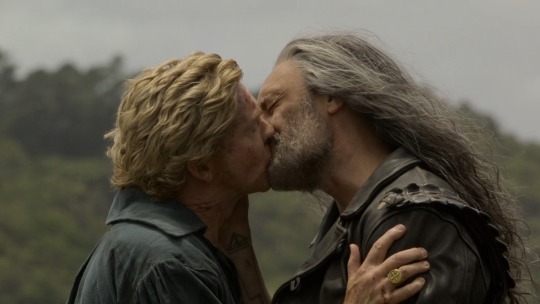
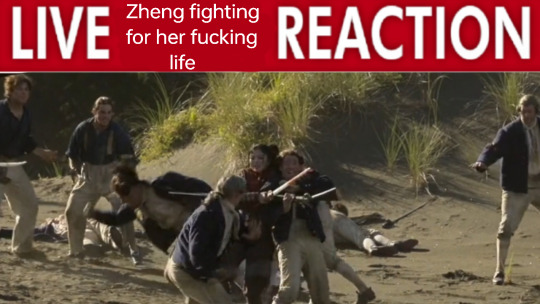
#okay but fr i died that they kept on kissing whilst Zheng was calling for them like they really said 'this is important just wait damn!'#our flag means death#our flag means death season 2#ofmd#ofmd s2#ofmd s2 spoilers#edward teach#stede bonnet#blackbeard#gentleblack#blackbonnet#taika waititi#rhys darby#david jenkins#zheng yi sao#ofmd susan#also this is my FOURTH live reaction post from this season 😂😭 - everyone had that 'in front of my salad' energy 24/7 this time around!
4K notes
·
View notes
Text
Mobscollace for the soul...gay boys save me...save me gay boys...

#mobscollace#scott pilgram takes off#scott pilgrim#spto#wallace wells#scollace#scobile#mobile scott pilgrim#moballce#ot3#art#fanart#scott x wallace#these three would kiss for sure#theres a reason old scott lives there and that reason is domestic boyfriendhood
3K notes
·
View notes
Photo

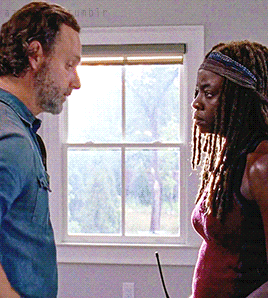


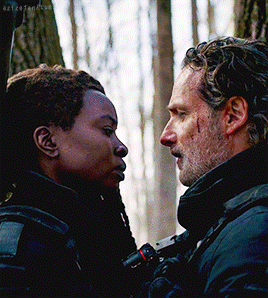

RICK + MICHONNE in The Ones Who Live s1.3 // The Walking Dead s7.5
#the ones who live#richonne#the ones who live spoilers#userthing#filmtvcentral#tvcentric#tvarchive#filmtv#twd towl#towl spoilers#towledit#otpsource#popularculturesource#smallscreensource#cinemapix#twdedit#michonne#rick grimes#rick and michonne#dailytvfilmgifs#tvedit#televisiongifs#tw blood#tw kissing#twd the ones who live#my edit
2K notes
·
View notes
Text
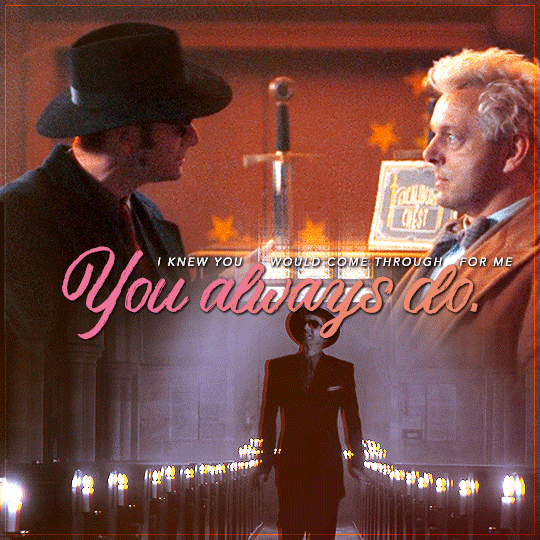
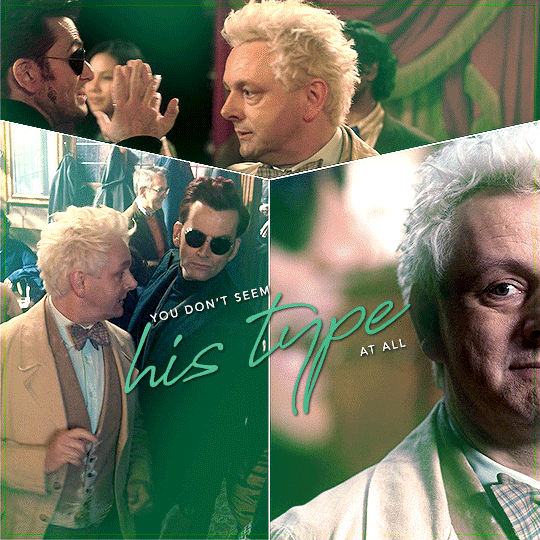
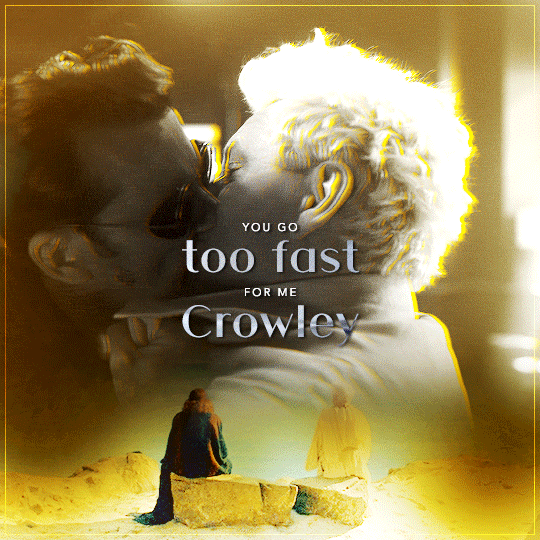

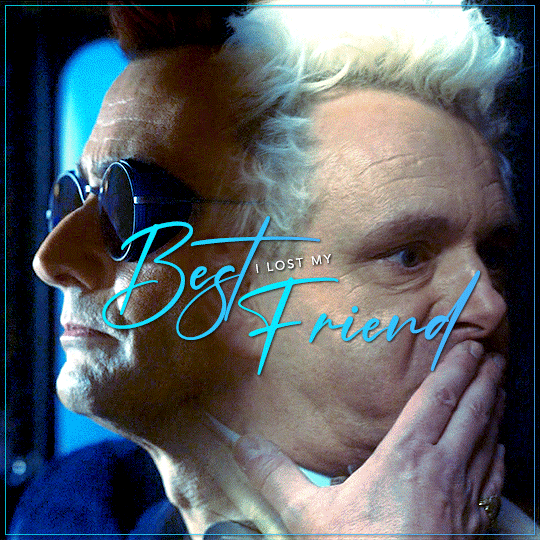

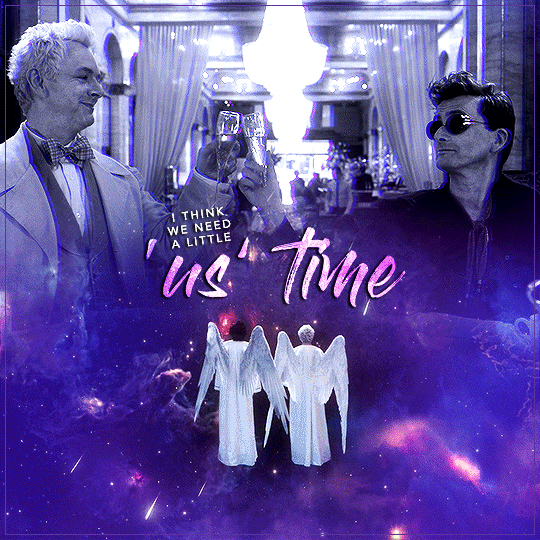
GOOD OMENS
2019 - present
You idiot. We could have been... us.

#good omens#goodomensedit#uservici#usereena#user-clara#userkristi#userisaiah#ineffable husbands#aziraphale x crowley#david tennant#michael sheen#*laurengifs#userbbelcher#chewieblog#dailyflicks#that kiss gif made me lose the will to live <3#it's been entirely too long since i did an edit like this and it's so messy but idk. ta-daaa???#4k
5K notes
·
View notes